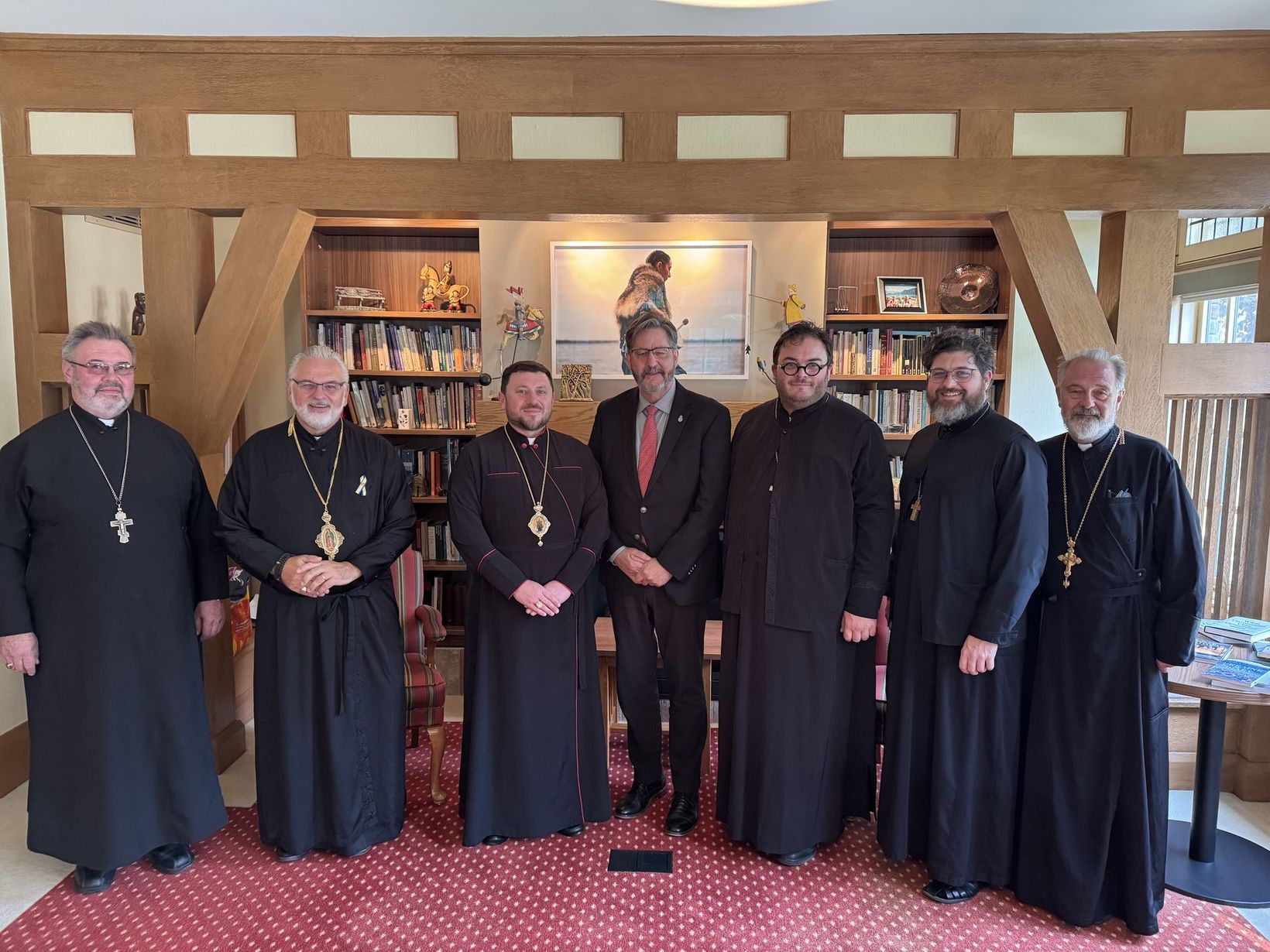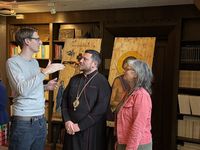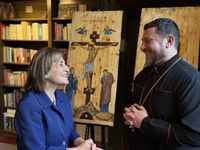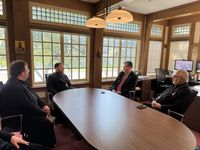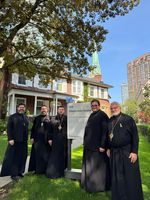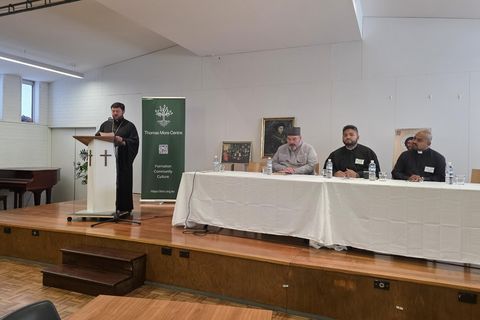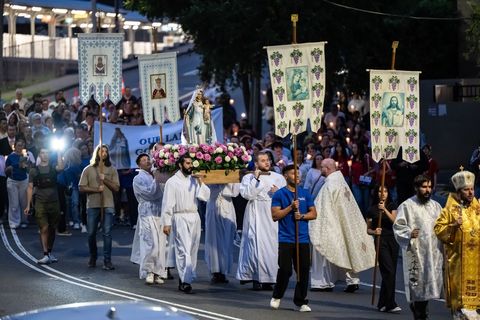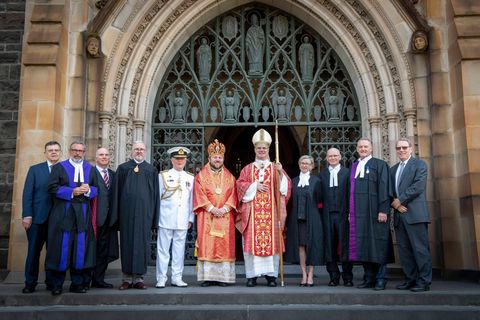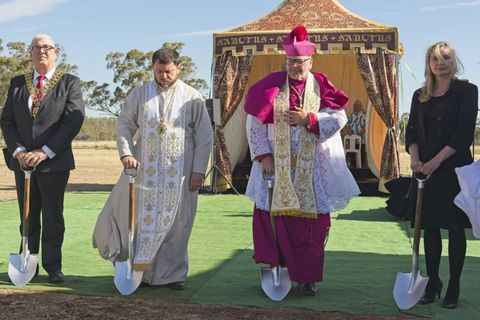Cardinal Mykola Bychok at the Sheptytsky Institute (Toronto, Canada): Missionary Work, Experience in Siberia, USA, Australia and His Service as Cardinal
On September 9, 2025, at the invitation of the Metropolitan Andrey Sheptytsky Institute of Eastern Christian Studies, a special meeting was held with Cardinal Mykola Bychok, Bishop of the Ukrainian Catholic Eparchy of Melbourne, and Bishop Bryan Bayda, Eparch of Toronto and Eastern Canada. The event also brought together members of the eparchial curia and faculty of the Institute.
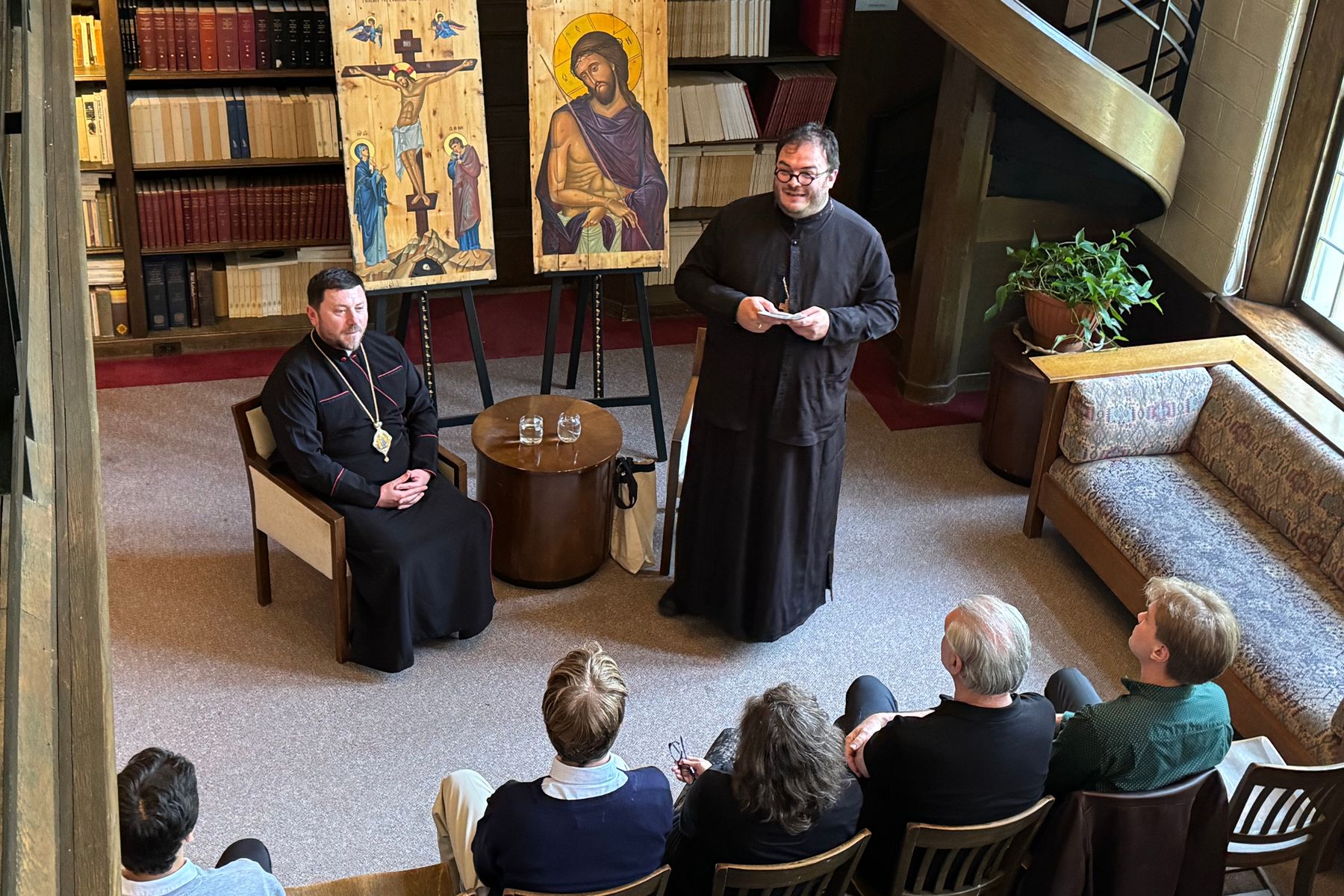
During the visit, Cardinal Bychok and Bishop Bayda met with Dr. David Sylvester, President and Vice-Chancellor of the University of St. Michael’s College at the University of Toronto, where the Sheptytsky Institute is based, as well as with other members of the university’s faculty. The evening included an open conversation and interview, moderated by Fr. Alexander Laschuk, where Cardinal Bychok shared about his missionary service in Siberia, the United States, and Australia, as well as his journey of priestly ministry.
Australia: Shepherding on a Continent of Vast Distances
Cardinal Bychok offered a detailed account of the challenges of pastoral ministry in Australia, where the faithful are relatively few in number, but scattered across enormous distances.
“We do not have many faithful — about 10,000 Ukrainian Catholics in Australia. But the territory we cover is immense. For example, one of our parishes is almost 4,000 kilometers away from the cathedral in Melbourne. Sometimes the nearest neighboring community is 2,500 kilometers away. This is truly missionary work.”
He emphasized that such distances can only be managed by air travel, as driving is simply not possible.
“We visit even the smallest communities — sometimes nine people, and sometimes only two. Yet it is worth it, because each encounter is an opportunity to listen, to support, to advise. Especially now, when the war in Ukraine leaves deep wounds in the hearts of our people.”
Siberia: Ministry Among Deported Ukrainians
Another highlight of the conversation was his recollection of years of priestly ministry in Siberia. There, Cardinal Bychok served the descendants of Ukrainians forcibly deported by the Soviet authorities in the 1940s.
“Those who disagreed with the communist regime were deported to Siberia. When I asked people if they were not afraid of persecution, they replied: we are already in Siberia, what more could they do to us? They preserved their faith despite the harsh conditions. That was a great lesson for me.”
He admitted that life in mining towns after the fall of the Soviet Union was extremely difficult: unemployment, poverty, and addictions. Yet even under such pressures, people remained faithful — a powerful witness of resilience and spirit.
Becoming a Cardinal: “At first, I thought it was a joke”
Cardinal Bychok also shared candidly about the moment he learned of his nomination to the College of Cardinals.
“That day I was in Brisbane for the Feast of the Protection of the Mother of God. I had turned off my phone to quietly have dinner with the parish priest and his family. When I turned it back on — dozens of missed calls, and a message: ‘Congratulations, you are a Cardinal!’ I thought it was a joke. But when I opened the Vatican website, I realized it was true. It was a shock for me and for my family: My mother cried, just as she had when I was made a bishop.”
He added that this call was both unexpected and a profound challenge, requiring time for him to fully embrace.
The Conclave: Prayer and the Guidance of the Holy Spirit
Cardinal Bychok went on to describe his experience of participating in the conclave following the death of Pope Francis, highlighting the spiritual depth of the occasion.
“Being in the Sistine Chapel under the gaze of the Last Judgment was an unforgettable experience. Many cardinals prayed the Rosary during the voting. The central figure of a conclave was the Holy Spirit. It was He who guided the election of the new Pope.”
Family as the “Domestic Church”
Cardinal Bychok also stressed the importance of the family and Christian education. He reminded those present that parents are the first teachers of faith and culture, making the family the foundation of the Church’s future.
“When we lose the family, we lose the future. Parents are the first teachers and the first church for their children. They must pass on not only knowledge, but also faith, tradition, culture, and the Ukrainian language. We must support families so that through them Ukraine may be renewed and healed.”
“Your prayers are greatly needed for Ukraine today”
Concluding the event, Cardinal Bychok expressed his gratitude for the ongoing support for Ukraine during the war and urged those present not to cease in prayer and solidarity.
“We feel your prayers and your help. This is not only a war on the ground — it is also a spiritual battle. We must remember the call of Fatima: to pray for the conversion of Russia. Your prayers and solidarity are very much needed for Ukraine today.”
The evening ended with the presentation of publications from the Sheptytsky Institute — including the newly released volume on Eastern Catholic theology — followed by a joint prayer and the Cardinal’s blessing:
“May Almighty God bless you all in the name of the Father, and of the Son, and of the Holy Spirit.”
After the interview, the participants joined the hierarchs, priests, and students of the Institute in praying Vespers together. Eparchy of Toronto and Eastern Canada